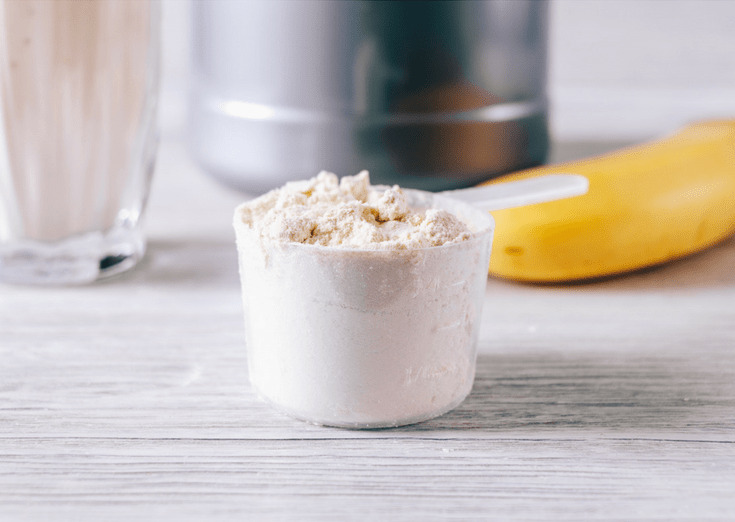Get the expert info on the health benefits of collagen, plus simple ways to add more collagen to your diet.
What is collagen?
You’ve heard about collagen’s benefits, but what actually is it? Collagen is the most abundant protein in the human body, making up about 30% of our total body protein. You can find collagen in our muscles, bones, skin, blood vessels, digestive organs, and connective tissues.
The primary function of collagen is to give our organs and tissues their structure and shape. Collagen’s unique triple helix shape makes it extremely durable and flexible, which allows our tissues to perform various functions, stretch, and withstand pressure without tearing.
Types of Collagen
There are 28 types of collagen in the body, however, the following types of collagen are the most common (1,2).
Type 1 Collagen
Type 1 collagen is the strongest and most abundant type of collagen in the body. It plays a key role in holding our tissues together and giving our skin elasticity. You can also find type 1 collagen in tendons, bones, ligaments and organs, including the lining of the GI tract. Beef bone broth is a great source of type 1 collagen.
Type 2 Collagen
Type 2 collagen is used to build cartilage for our joints, tendons and ligaments. It is key in preventing joint pain and arthritis (3). Chicken bone broth is a great source of type 2 collagen.
Type 3 Collagen
Type 3 collagen is found mostly in our skin, muscles, organs, and blood vessels. It’s essential in preventing our blood vessels from rupturing.
Key Health Benefits of Collagen
Collagen Supports Healthy Hair and Skin
Collagen gives our skin a firm and smooth appearance. As we age, our collagen stores deplete by about 1% every year, which can eventually cause wrinkles and sagging skin (4). Thankfully, we may be able to replenish our collagen stores by incorporating more collagen in our diet.
Several double-blind, randomized-controlled studies have found that supplementing collagen for 8 weeks improves skin elasticity, moisture, wrinkles, and roughness (5 , 6). Additionally, one study also found that collagen supplementation improved hair volume, shine, thickness and growth (7). More research needs to be done, but dietary collagen might just be the new, all natural anti-aging secret weapon.
Collagen Repairs and Protects Joints
Type 2 collagen found in cartilage plays a key role in supporting joints. The age-related decline in collagen is part of the reason why we experience stiff and painful joints as we get older. Athletes are also at risk for achy joints due to all the wear and tear on their cartilage, tendons, and ligaments.
There is a growing body of research that suggests supplementing with collagen hydrolysate may help replenish collagen stores in our cartilage (3). Although more research needs to be done, several studies report that collagen hydrolysate supplementation is safe and may improve joint function in athletes and people with joint pain, rheumatoid arthritis and osteoarthritis (3, 8, 9, 10, 11).
Collagen Helps Heal Your Gut
Do you find yourself getting sick often? Or maybe you have a ton of food sensitivities or strong food cravings? How about hormone imbalances or acne? Chances are you might have a condition called Leaky Gut Syndrome.
Leaky Gut occurs when there is a separation between the tight junctions of your intestinal lining. This allows food particles, bacteria, chemicals, food additives and other potentially harmful substances to enter your blood stream, where they trigger your immune system to launch an attack on various tissues in your body. Collagen helps to heal leaky gut by providing key amino acids (glycine and glutamine) to support digestion and rebuild your gut lining (12).
Collagen Supports Liver Detoxification
Your liver is the primary organ responsible for detoxing your body from harmful internal and external toxins. Dietary collagen helps support liver detoxification because it provides key amino acids like glycine, that help form the potent endogenous (aka made in the body) anti-oxidants glutathione and uric acid.
How to Add Collagen to Your Diet
Now that you know the health benefits of collagen, here are some ways to incorporate this superfood into your diet.






